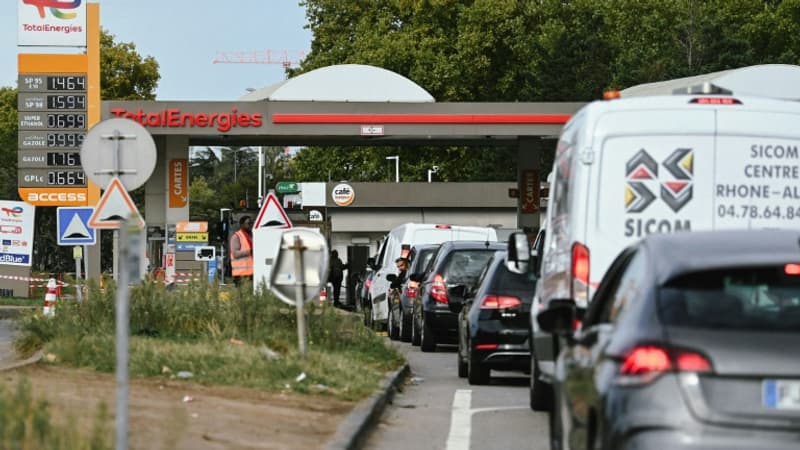Same problem, different victims. If the situation in some service stations is reminiscent of last autumn’s episode, it is not necessarily the same geographical areas that are most affected by the long lines of motorists. Although the departments located on the Atlantic coast performed quite well in October, relatively unaffected by the sector’s social movements, they are now the most exposed to supply difficulties.
More than half of the Loire-Atlantique sites are sold out
The prize goes to Loire-Atlantique where 55.06% of the stations are missing at least one fuel on Monday. The neighboring departments are not left out as Mayenne, Ille-et-Vilaine and Maine-et-Loire have rupture rates of over 40%. By way of comparison, only 6.4% of Brittany petrol stations were out of fuel on 20 October.
Geographical sector that “initiated” these disturbances, the South also continues to be heavily affected, in particular Bouches-du-Rhône with more than 40% of the stations in difficulty, and several other departments with more than 30%.
In total, 15.7% of service stations in France have a shortage of at least one of the fuels (gasoline and/or diesel) they offered on March 1, according to data analysis from the government site for fuel prices. fuels. Almost half of them are dry after the mobilizations in the refineries against the pension reform.
Delayed effect of requisitions
According to the French Union of Petroleum Industries (UFIP Energies et Mobilités), the problem persists and is growing in the western departments due to the combination of two phenomena. “Originally, the problem was the blocked Donges deposit that weighed on logistics, but last week there were requisitions that allowed the shipments to be refluxed,” explains the professional union of oil companies.
It is true that the requisitions started at the Donges refinery since Friday make it possible to supply the Vern-sur-Seiche oil deposit, near Rennes, which serves all of Brittany.
However, motorists continue to go to stations to make precautionary purchases, which “maintains this situation,” according to UFIP-EM.
Source: BFM TV


